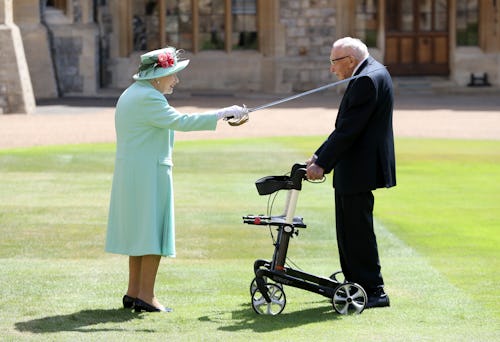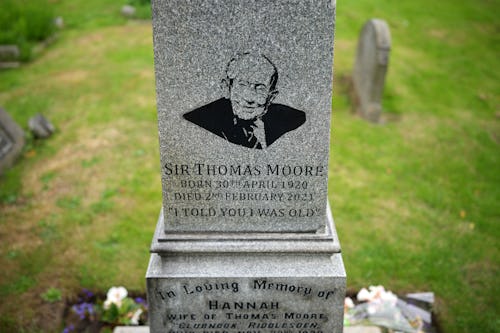
Captain Sir Thomas Moore, a former British Army officer, raised over £32 million for COVID-19 relief by taking 100 laps around his garden on the eve of his 100th birthday. Last February, he passed away after contracting the virus himself, leaving a nation in heartbreak. Except for one Twitter user in particular — Joseph Kelly, a 36-year-old Glasgow resident, decided to post the following a day after Moore’s passing: “The only good Brit soldier is a dead one, burn auld fella buuuuurn.”
As reported by The National, Kelly was sentenced to 150 hours of unpaid community service, to be completed over the course of 18 months. He was found guilty of sending a “grossly offensive” tweet for targeting a beloved figure that had been knighted by the Queen herself. The punishment, which seems fairly harsh for a drunken tweet, was actually a concession, considering Kelly was facing a possible stint in jail.
A piece of U.K. legislation ratified in 2003, known as the Communications Act, makes using a public electronic communications network (e.g. the internet) to send something “that is grossly offensive” which they “know to be false” a crime. Anyone found guilty is liable “to imprisonment for a term not exceeding six months or to a fine not exceeding level 5 on the standard scale, or to both.”

Trigger fingers turn to Twitter fingers —
In Drake’s now-seminal diss track against Meek Mill, he drew attention to the latter’s hostile bravado being confined to online back-and-forths, stating that Mill was only talking tough on the internet. This concept is pretty much universally accepted in the U.S. — after all, many believe it’s every American’s right to be as disparaging as they want on their preferred social media platform. This is clearly not the case across the pond.
While his tweet was certainly insensitive, Kelly is now facing real-world repercussions over something that, depending on your stance on the military, is fairly mild, considering the daily scuttlebutt that takes place on Twitter.
This sentiment was echoed by Kelly’s defense agent, Tony Callahan, who claimed his client tried to make amends by deleting the post after 20 minutes and that he was also inebriated at the time of the tweet’s creation. Callahan also defended Kelly’s tweet by mentioning that Kelly had been “struggling emotionally” at the time.
Still, the counterargument landed on deaf ears; Sheriff Adrian Cottam confirmed that, after hearing the evidence, the post in question “was a grossly offensive tweet,” and that it was important for Kelly “to realize how quickly things can get out of control ... you [Kelly] are a good example of that, not having many followers.”







